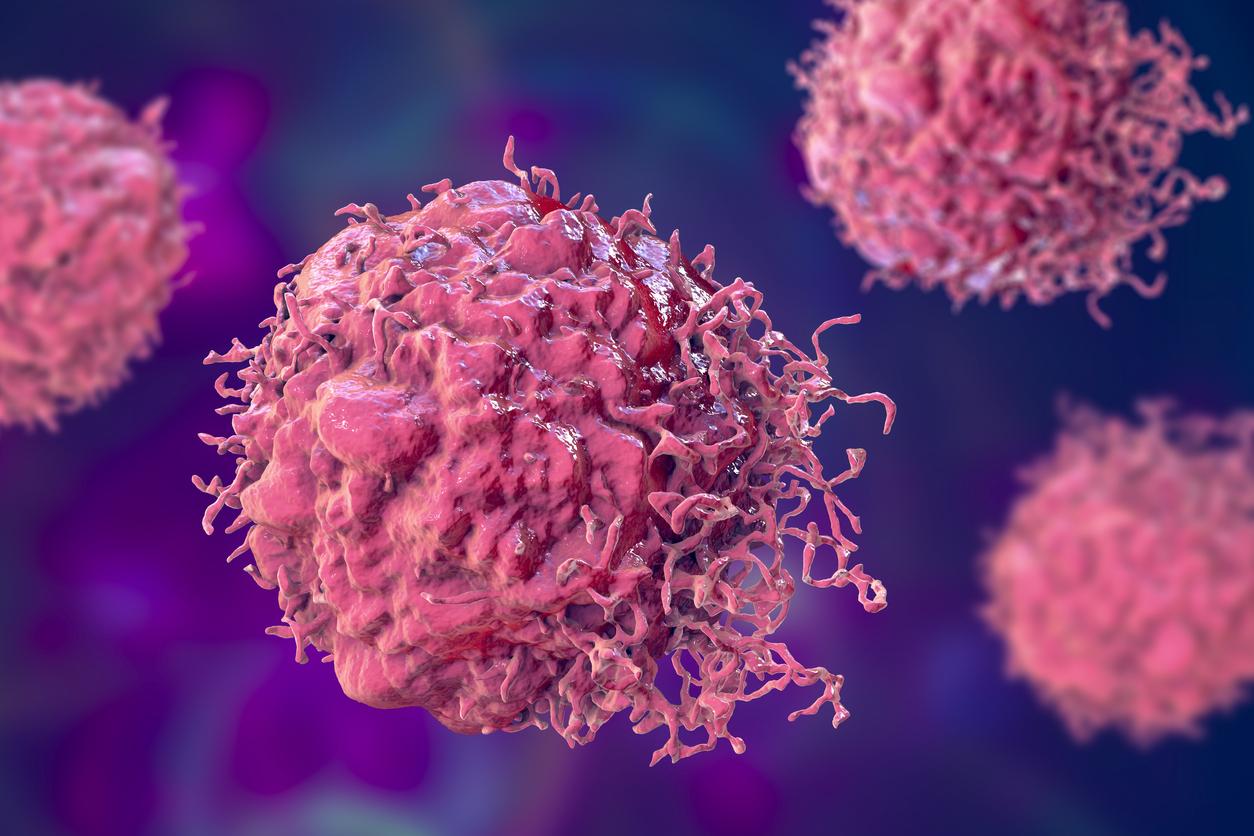Recognizing the warning signs of cancer is crucial for early diagnosis and effective treatment. The key word: the importance of vigilance and regular medical consultations.

- Every day, about 1,000 people learn that they have cancer.
- Cancer is caused by the abnormal behavior of a cell.
- The Cancer Foundation has compiled a list of symptoms that can occur in cases of cancer.
Every day, around 1,000 people in France are diagnosed with cancer. This disease develops when cells in the body start to divide uncontrollably and form tumors. These tumors can be benign (non-cancerous) or malignant (cancerous). Cancer cells can invade nearby tissues and spread to other parts of the body via the blood and lymphatic system, a process called metastasis. There are many types of cancer, each with its own characteristics and patterns of progression.
Warning signs of cancer
Symptoms of cancer can vary depending on where the tumor is located, how big it is, and how it affects nearby organs and tissues. Here are some warning signs to watch out for:
- Unexplained weight loss: Rapid, unintentional weight loss can be a sign of several types of cancer, including stomach, pancreatic, lung, or esophageal cancer. If you lose more than 5 percent of your body weight in less than six months without changing your diet or exercise habits, see a doctor.
- Persistent fatigue: Fatigue is a common symptom of cancer, often due to the growth of the tumor that is consuming a lot of energy, or to side effects of treatment. If you experience unusual and persistent fatigue, it is important to consult a healthcare professional.
- Unexplained pain: Persistent pain that does not go away over time may indicate the presence of cancer, especially if it is localized to specific areas such as the back, joints or chest. The pain may be caused by the tumor pressing on nearby nerves or organs.
- Skin changes: Changes in the appearance of your skin can be signs of skin cancer. This includes new growths, sores that don’t heal, dark spots, and changes in the color or texture of moles. It’s important to have any abnormalities checked by a dermatologist.
- Unusual bleeding: Abnormal bleeding can be a sign of cancer. For example, blood in the stool can indicate colorectal cancer, blood in the urine can be a sign of bladder or kidney cancer, and abnormal vaginal bleeding can signal uterine or cervical cancer.
- Changes in urinary or bowel habits: Persistent changes in bladder or bowel habits, such as diarrhea, constipation, or pain when urinating, may be signs of colorectal, bladder, or prostate cancer. It is crucial to see a doctor if you notice these symptoms.
- Persistent cough or hoarseness: A cough that lasts more than three weeks or persistent hoarseness may be a sign of lung, throat, or vocal cord cancer. If these symptoms do not go away, see a healthcare professional for a thorough examination.
- Abnormal mass or lump: Any lump or mass, especially in the breasts, testicles, neck, or other parts of the body, should be evaluated by a doctor. Although not all masses are cancerous, it is essential to have them evaluated to rule out cancer.
The importance of vigilance and regular screenings
Recognizing the warning signs of cancer is the first step toward early diagnosis, which can significantly improve the chances of a cure. However, some cancers may be asymptomatic at an early stage, making regular screenings essential for early detection.
THE regular screeningssuch as mammograms for breast cancer, Pap tests for cervical cancer, colonoscopies for colorectal cancer, and PSA tests for prostate cancer, can detect abnormalities before symptoms appear. Talk to your doctor about appropriate screenings for your age, family history, and individual risk factors.
Cancer prevention measures
In addition to regular screenings, adopting a healthy lifestyle can reduce the risk of developing cancer. Here are some important preventive measures:
- Avoid tobacco: Smoking is a leading cause of many cancers, including lung, mouth, throat, pancreas, bladder, and kidney cancers. Quitting smoking is one of the most effective steps you can take to reduce your risk of cancer.
- Adopt a healthy diet: A diet rich in fruits, vegetables, whole grains, and lean proteins, while limiting processed and high-fat foods, may help prevent some cancers. High-fiber diets, in particular, are associated with a reduced risk of colorectal cancer.
- Maintain a healthy weight: Obesity is a risk factor for several types of cancer, including breast, colon, uterine, esophageal, and kidney cancer. Exercising regularly and maintaining a healthy weight is essential.
- Limit alcohol consumption: Excessive alcohol consumption is linked to an increased risk of several cancers, including liver, mouth, throat, colon, and breast cancers. Limit your alcohol intake to reduce this risk.
- Protect your skin: Excessive exposure to the sun and UV rays can cause skin cancer. Use sunscreen, wear protective clothing, and avoid tanning booths to protect your skin.
- Get vaccinated: Some viral infections can increase the risk of cancer. For example, the human papillomavirus (HPV) vaccine can prevent cervical and other HPV-related cancers.
Cancer can affect anyone, and its symptoms can be varied and sometimes subtle. Recognizing the warning signs of cancer and consulting a doctor when in doubt is crucial for early diagnosis and effective treatment. By adopting preventive measures and participating in regular screenings, you can reduce your risk of cancer and improve your chances of detecting the disease at an early stage. Stay vigilant, take care of your health and do not hesitate to consult a health professional for any concerns.

















